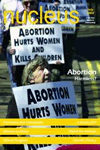Speciesism noun human assumption of superiority.[1]
The UK government has been widely cited as being in the process of drawing up a ‘Bill of Rights’ for pets. The wording may be imprecise, but proposed changes to legislation do aim to ensure a minimum quality of life for captive animals.[2] It is right to give animal welfare careful consideration. But it is also important to understand the distinctive nature of humanity, created in God’s image. The Bible does not concur with those who seek to put humans and animals on an equal footing. It is speciesist - reflecting reality, not just a human assumption.
Germany was the first country in the European Union to grant constitutional rights to animals. With a vote to insert just three words ‘und die tiere’, parliamentarians effectively ordered the state to protect the natural foundations of life for animals as well as humans. Renate Knast, the agriculture minister and member of the Green party, which campaigned for the reform, insisted that the change to the law did not give animals equal rights with humans. But if this is the case, the legal wording certainly does not make this clear. The German Health and Research Society, representing the interests of animal testing laboratories, has already stated that it could lead to considerable legislative uncertainty.[3]
The recently proposed British laws might result in pet owners, farmers, circus managers and pet shops facing prosecution if they fail to provide animals with adequate food, water and space in cages. Proposals also include preventing young children from buying pets as well as a ban on docking dog’s tails.[4] The UK Animal Welfare Bill would pull together disparate laws, including the 1911 Protection of Animals Act, into one piece of legislation. The RSPCA (Royal Society for the Prevention of Cruelty to Animals), which has been consulted by the government, is also seeking a new ‘duty of care’ which animal owners would have a legal responsibility to meet. This is enshrined in the ‘five freedoms’ outlined below.
The RSPCA’s proposed ‘five freedoms’ for pets[5]
- Freedom from hunger and thirst - enough good food and water to keep them healthy
- Freedom from discomfort - comfortable cages or resting areas
- Freedom from pain, injury and disease - and rapid veterinary treatment if they are ill
- Freedom to express normal behaviour - so they have enough space and company
- Freedom from fear and distress
Understanding uniqueness
From the first chapter of Genesis, the distinctiveness of man is asserted. Despite common characteristics and physiology, only human beings have unique significance, being made ‘in the image of God’.[6] Human life is sacred because God has instilled within us a godlike nature[7] that, though defaced by the ravages of sin, cannot be destroyed.[8] Psalm 8:5-8 is clear that man is supreme over God’s creation and steward over it. Ultimately, God took on mortal flesh in the person of Jesus,[9] describing man as ‘worth more than many sparrows’.[10]
Humans were commanded to ‘rule over’ the animal world.[11] This statement, however, implies both authority and responsibility. It permits the use of animals for human benefit. Uses might be as diverse as for food[12] and organ transplantation,[13] as long as these do not involve exploitation. The use of animals in experimentation is not precluded either. Provided there is significant human benefit, no adequate alternative, and suffering is minimised, experimentation on animals is justified.[14]
Maintaining perspective
Care for animals is specifically enjoined in Scripture[15] and it is right that we should be concerned for their welfare. Yet it is the human race that is made in the image of God; hence its welfare should be our prime concern. Peter Singer, Professor of Philosophy at Monash University, Melbourne, Australia has spent many years attacking those who make bioethical discriminations between humans and animals. He coined the term ‘speciesism’, likening the practice to ‘racism’ and ‘sexism’. But the Bible calls us to realise our distinctive nature, set apart for God. An assault on man is an assault on God.[16]
In a fallen, hurting world, animal welfare issues should not distract us from the worldwide assaults on humanity in numerous forms such as torture, abortion and euthanasia. It is right that pet owners should provide adequate care for their animals, free from fear, hunger and distress, but humans - God’s ‘images’ - should do the same and more for each other.
































